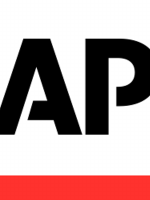SACRAMENTO, Calif. (AP) — A criminal justice reform group that launched this week has brought together Democratic and Republican governors, a Black Lives Matter organizer and a Koch Industries executive in an unlikely collaboration focusing on finding solutions to problems like racial disparity and the effects of a 1994 crime bill in policing and prisons. Veteran criminal justice policy expert Adam Gelb said he formed the Council on Criminal Justice because the field seems ripe for consensus. He previously led the Pew Charitable Trusts' Public Safety Performance Project, which helped states with sentencing reforms, and worked with Congress on the crime bill. The group builds on a major criminal justice overhaul that passed Congress with rare bipartisan support and was signed by President Donald Trump last year. The First Step Act gives judges more discretion in sentencing, eases mandatory minimum sentences and encourages inmates to participate in programs aimed at reducing recidivism. More than 2 million people are behind bars in the United States, giving it the highest incarceration rate in the world and costing taxpayers $182 billion each year, the Prison Policy Initiative said. People of color also are overrepresented in the nation's prisons and jails, according to a nonpartisan group fighting mass incarceration.
The Council on Criminal Justice has two initial research projects underway, with reports expected later this year. One is exploring incarceration trends by race and gender. The other is examining fallout from the 1994 crime bill passed under President Bill Clinton and largely crafted by then-Sen. Joe Biden, who's faced blowback as a Democratic presidential hopeful over the measure that some have blamed for the mass incarceration of racial minorities. The bill put stricter sentencing terms on crack versus power cocaine. The council includes former California Governor Jerry Brown, a Democrat, and Kentucky Republican Governor Matt Bevin. It also has Charles Ramsey, a former police leader in Washington and Philadelphia, and Black Lives Matter lead organizer DeRay Mckesson. The group's co-chairs are Mark Holden, senior vice president for Koch Industries, the Kansas-based energy conglomerate of conservative billionaire brothers Charles and David Koch; and Sally Yates, the former deputy U.S. attorney general fired by Trump after she refused to defend his travel ban on residents of some majority-Muslim countries. "It's one of the few issues in which you do find some bipartisan consensus these days," Yates said of criminal justice reform. "We need to latch on to that and to latch on to this moment in time to be able to drive that forward." For his part, Holden worked as a guard at a Massachusetts jail when he was in college, where he said he witnessed people with mental illness being "warehoused." "From my perspective, there are a lot of failed government programs," he said. "This is the ultimate failed big government program that literally destroys lives and wastes money."
The council wants to raise $25 million over five years and already has a $2 million first-year budget from donors. Trustees and a 16-member board of directors will pick research topics but won't sign off on reports generated by task forces they appoint.

